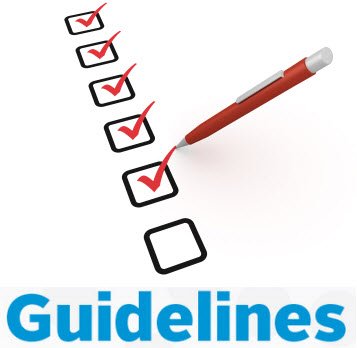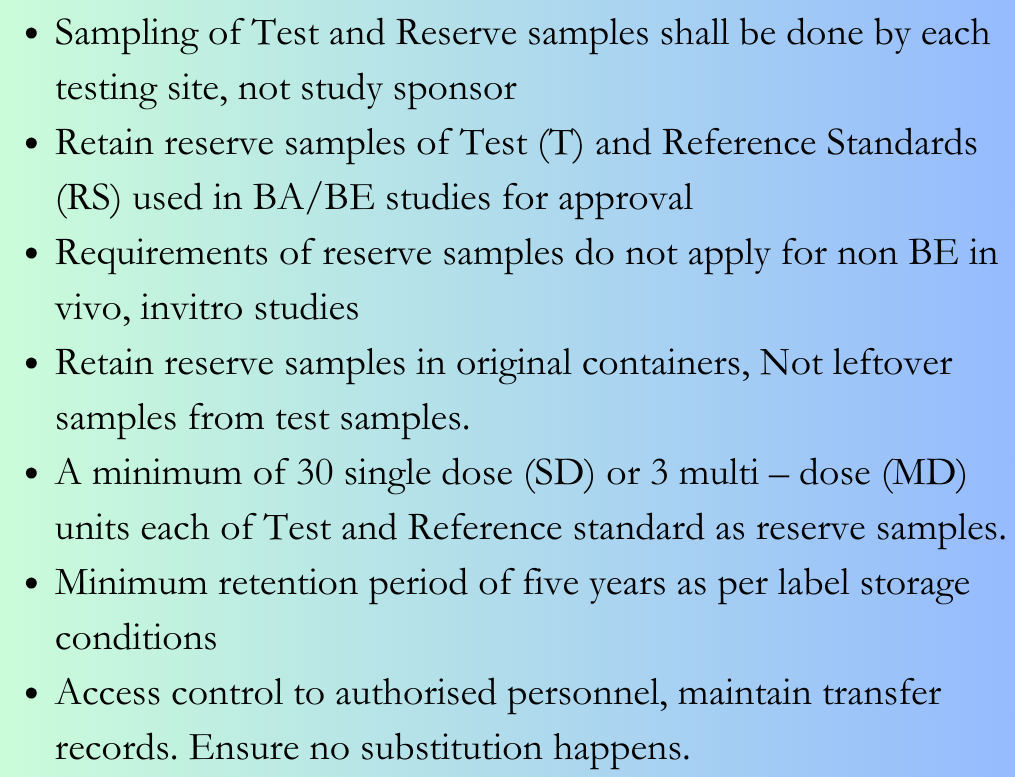
FDA has issued a new guidance for handling reserve samples from bioavailability (BA) and bioequivalence (BE) studies for study sponsors and/or drug manufacturers, contract research organizations (CROs), site management organizations (SMOs), and investigators. The guidance is for immediate implementation. The guidance addresses the comments received on the FDA’s August 2020 guidance Compliance Policy for the Quantity of Bioavailability and Bioequivalence Samples Retained Under 21 CFR 320.38(c) which is now withdrawn.
The highlights of the draft guidance are:
- How test Articles (T) and reference standards (RS) for BA, BE studies to be distributed to testing, sites, how testing sites should randomly select samples for testing and reserve samples, retention of the reserve samples.
- The applicant or sponsor of the BA/BE studies, or if the studies are performed by a CRO, the testing site shall retain reserve samples of the Test (T) and Reference Standards (RS) used in a invivo and invitro BA/BE studies that is required for approval in accordance with CFR §320.38 & §320.63. However the requirements for reserve samples do not apply to in vivo studies that assess irritation, sensitisation etc or invitro characterisation studies which are not BE studies for establishing bioequivalence.
- The guidance also directs that study sponsor shall not select the Test and Reserve samples. The study sponsor should send samples to each testing site in a manner that allows for the random selection of both test and reserve samples upon receipt of shipment; it is not acceptable to keep the leftover samples from testing as reserve samples except in special cases like single container of bulk packed single dose samples. The reserve samples shall be stored in original containers in accordance with storage requirements
- As per CFR §320.38 & §320.63, the testing sites (CROs) shall retain reserve samples in sufficient quantity to permit FDA to perform five times all release tests as in the application. However it may be appropriate for sites to retain lower quantity as long as it is still sufficient for FDA to conduct necessary chemical and physical examination of the samples, to assure identity and composition of the test article. A minimum quantity of 30 single dose (SD) or 3 multi – dose (MD) units each of Test and Reference standard per batch in original container in total across all testing sites shall be retained. However Testing sites should not open containers to retrieve the recommended minimum quantity for reserve samples. It should be noted that if a testing site fails to retain reserve samples, the study data from the testing site may not be included in the assessment of BA, BE studies.
- Reserve samples should be stored at least for a period of five years following date on which application is approved or date of completion of BA/BE study, when application is not approved. The reserve samples must be stored as per product label storage conditions, with access limited to authorised personnel, track all access to reserve samples and document and maintain all transfer records for agency verification. It shall be ensured that there is no substitution of reserve samples. When there are multiple shipments of samples to testing sites, the samples from different shipments shall not be comingled.
The guidance also details the roles of different entities involved in the BA, BE studies – Sponsor / Drug Manufacturer, CRO (Testing site), SMO (Site Management Organisation).
FDA Guidance: Handling and Retention of Bioavailability BA and Bioequivalence BE Testing Samples





Leave a Comment
You must be logged in to post a comment.